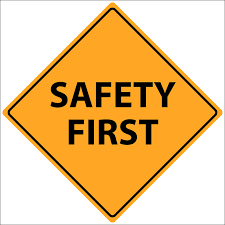Workers compensation insurance premium is often a large portion of overall property and casualty insurance costs. Many business owners look at the workers compensation premium and wonder how they can reduce the overall cost of the insurance policy. The following ideas can help reduce your costs and hopefully help make your business more profitable.
Make sure you are classified properly
Business will have a classification code determined by National Council on Compensation Insurance (NCCI) or some cases the State will have a slightly different number that is used by insurance carriers to rate workers compensation insurance premium. For Example one way to reduce your cost is to take advantage of standard exceptions to the code classification. Employees who perform clerical duties and are physically separate from manufacturing operations may be classified as clerical employees with a much lower rate. Make sure the classification for your employees is appropriate.
Monitor your loss control and safety programs
Loss Control and Safety is critical for preventing losses in the workplace. Set the expectation in your safety manual. Follow up by reminding employees of safe practices including lifting, distracted driving, and the hazard of wet floors. Scheduled safety meetings and incentive programs should be used to promote workplace safety. Decreasing losses will reduce your overall insurance costs.
Develop an effective return-to-work program
Develop a return to work program. Having injured employees staying at home collecting workers compensation will raise your costs on premiums and also on additional labor you will need to hire while that person is out. A way to get your injured employee to return to work as soon as possible is to create a temporary position for that person. You can give them duties that are not taxing on the body so that they will still be able to recover while they are working.
Speak with your agent about adding a deductible
Evaluate the benefit of adding a deductible to your Workers’ Compensation program. A deductible provides an immediate credit to the workers compensation insurance premium calculation. Additionally, losses under the deductible will not be reported to NCCI and will cause a reduction in your experience modification. Be sure to analyze the cost of funding your deductible.
Notice if there is a pattern to workers compensation claims. Determine if certain areas of your business have fewer claims than others, and determine why the risk is lesser or greater in different areas. Reduce risk by duplicating safe behaviors and programs and eliminating risky behaviors.. Eliminate workplace hazards that have caused an employee to get sick or injured so it doesn’t happen again. Some carriers will even provide help in this area.
Report claims ASAP
Report Claims as soon as possible! Provide medical attention quickly if an employee is injured, as prompt medical attention may reduce complications that may arise from delayed care. Complications can make workers’ compensation claims more expensive, which may increase insurance premiums.Statistics prove that losses reported 24 hours or more after the loss are more expensive than those reported promptly. Managing your Workers’ Compensation program carefully can save money and improve your bottom line.
These are just a few ideas that can help you in either keeping your premiums low or driving them down. Every business wants to be more profitable and it can be as simple as investing in work place safety that could get you started in the right direction.





